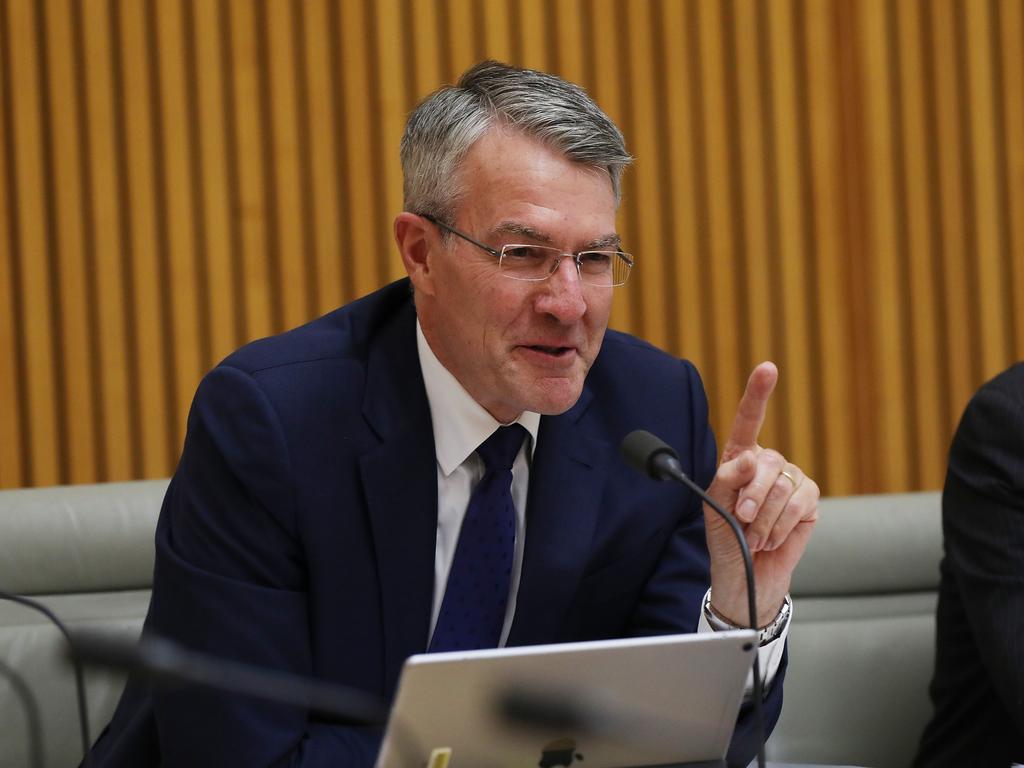Former commissioner says federal ICAC ‘can’t be law unto self’
Former AFP commissioner Mick Keelty has voiced concerns a new federal integrity commission could be politically weaponised to unfairly destroy careers.

Former Australian Federal Police commissioner Mick Keelty has voiced concerns over a newly established federal integrity commission being politically weaponised to unfairly destroy the careers of high-profile individuals.
Mr Keelty, who led the AFP in 2001-09, raised a series of challenges for the new watchdog including how corruption would be defined and whether “pork barrelling” would fall within its remit.
Writing for The Australian, Mr Keelty questioned how far back into the past the proposed anti-corruption commission could reach, how investigations would be determined, and what safeguards would be implemented to ensure members of the new body were not biased against individuals being investigated.
“It is essential that it cannot be politically weaponised and it is not a law unto itself,” he said.
He has made two proposals aimed at improving an integrity commission, including a panel of assessors to weed out “frivolous and vindictive complaints” and an inspector-general position to ensure that proper “investigation and prosecution guidelines are followed.”
Mr Keelty is worried the principle of “innocent until proven guilty” could be trampled upon, referencing the case of former AFP deputy commissioner Ramzi Jabbour, who was unsuccessfully prosecuted by the federal DPP.

Mr Jabbour was stood down in March 2019 after a “secret” investigation by the Australian Commission for Law Enforcement Integrity and the AFP. He went on to face two criminal charges of abuse of public office and possessing a prohibited firearm in the ACT Magistrates Court to which he pleaded not guilty.
Magistrate James Stewart, who heard the criminal charges, dismissed both and awarded costs against the commonwealth.
“The first charge related to alleged improper assistance by Mr Jabbour in support of a boy’s homework assignment. The boy is a relative of Mr Jabbour,” Mr Keelty said. “The court heard that ACLEI and AFP investigators attended a private Canberra high school in search of a homework assignment submitted by a relative of Mr Jabbour. Was it explained in conversations with teachers or any affidavit that Mr Jabbour was innocent until proven guilty?”
Mr Jabbour was accused of dishonestly exercising his influence to get advice from a legal officer. The court was presented with an email in which Mr Jabbour told the legal officer he was seeking a “steer” in relation to some questions about tort law. The questions were for the boy’s homework assignment, with Mr Jabbour’s lawyers arguing his request was meant sarcastically and did not amount to proof he had dishonestly used his position.
The magistrate agreed.
“The second charge alleged Mr Jabbour was in possession of his service firearm during a period of recreation leave,” Mr Keelty said. “At (his) court hearing, the magistrate was cautious not to be flippant about what had happened despite what must have been an irresistible urge to question why the matters were before him. This was a serious situation.”
“By this time, Mr Jabbour had lost his job as a deputy AFP commissioner, and was therefore immediately ruled out of contention for the position of commissioner.”
Mr Keelty said the incident showed how frivolous allegations could be advanced as a result of “due process” while derailing the career of an innocent person.
“Is this what we want in the new integrity commission? An ordinary member of the public would never have been subjected to such an intrusive and biased investigation, which is why ‘secret’ investigations have to be conducted sensibly,” he said.
He also questioned whether the ACLEI investigation could have been manipulated to serve a political purpose.
“The saga raises the prospect, even if it was an unintended consequence, that the ACLEI investigation was initiated to remove Mr Jabbour from contention for the role of AFP commissioner? It also raises questions on the motive of selective leaks to the media of the ‘secret investigation’ on the eve of Mr Jabbour’s hearing.”
Mr Keelty also raised broader concerns over how corruption was defined and Labor’s expectation for the new integrity commission to examine misconduct from up to 15 years ago.
“Does that mean that any ‘pork barrelling’ if captured under the definition of corruption will be trawled over, bogging down the new agency?”
To help delineate between genuine whistleblowers, marginalised employees and serial or frivolous complainants, Mr Keelty proposes a “panel of assessors” to examine referrals to the new integrity commission.







To join the conversation, please log in. Don't have an account? Register
Join the conversation, you are commenting as Logout